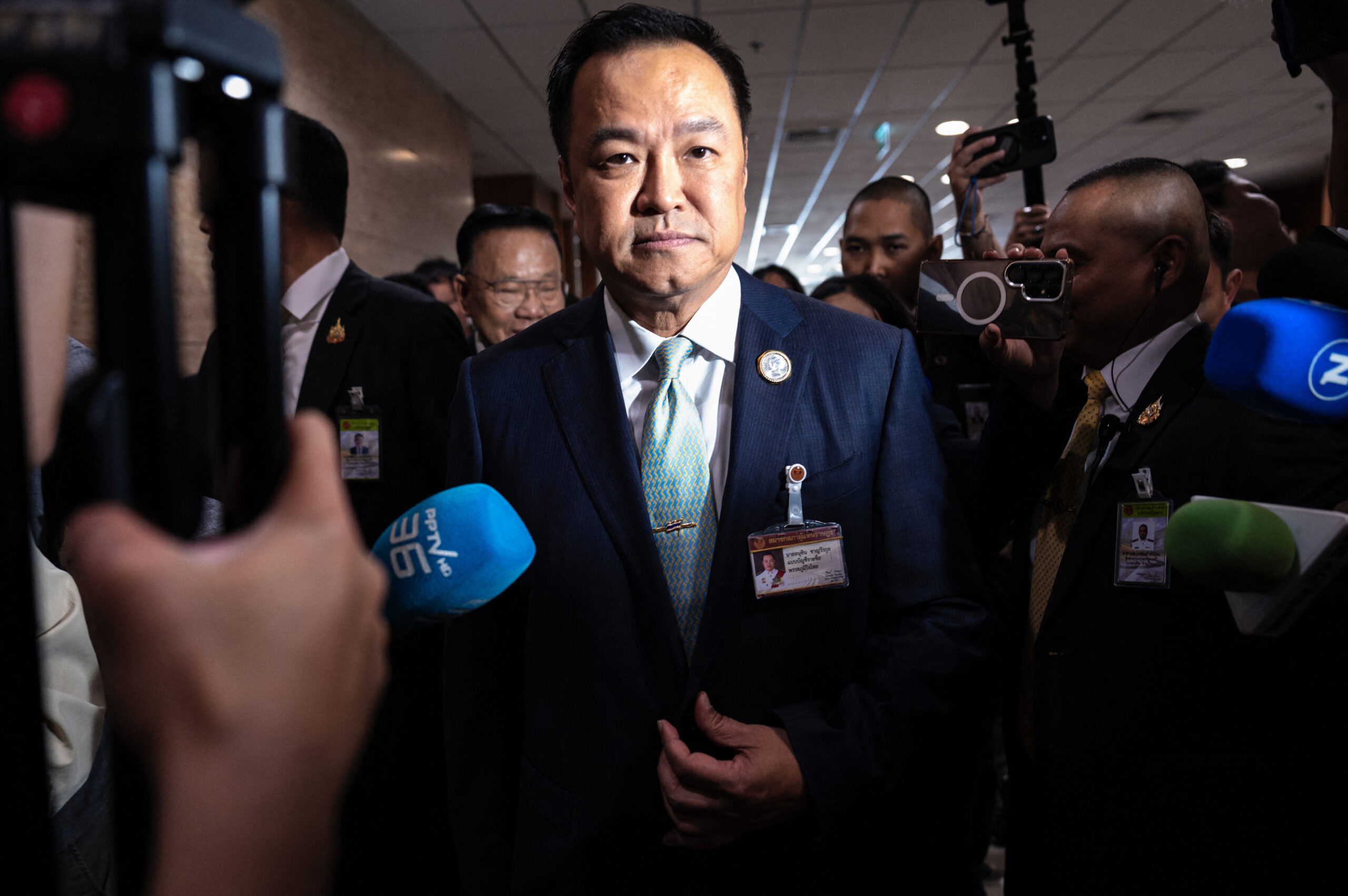
Anutin Charnvirakul elected as Thailand's next Prime Minister after parliament vote, pledging new elections and reforms. Image: AFP.
(The Post News)– Thailand’s parliament has elected Anutin Charnvirakul, the leader of the Bhumjaithai Party, as the nation’s next prime minister in a dramatic twist that followed the disqualification of Paetongtarn Shinawatra by the Constitutional Court.
Anutin, 58, secured Friday’s vote after compromising with the opposition People’s Party, which backed his candidacy in exchange for a deal to dissolve parliament within four months and call fresh elections. He is the third person in three years to assume the role, reflecting the tumultuous nature of Thai politics.
Anutin: A Royalist Tycoon at the Helm
Anutin, who is a firm royalist, built his political career on a foundation of business influence and populist policies. He hails from a powerful family that owns Sino-Thai Engineering and Construction, which built Suvarnabhumi Airport and Thailand’s parliament building.
Before becoming premier, Anutin had served as deputy prime minister, health minister, and interior minister. As health minister, he spearheaded the push to legalize cannabis in 2022. His action was both praised and criticized: while it had made Thailand the first country in Asia to decriminalize marijuana, critics argued that the policy lacked safeguards and had promoted free-for-all recreational use.
During the COVID-19 pandemic, Anutin spearheaded Thailand’s vaccine procurement and border reopening. He was criticized when he scapegoated Western tourists for importing the virus but later apologized.
Despite controversies, Anutin presented himself as a pragmatic leader who could unite people. “I will try my best, every day, no holidays,” he told reporters after the vote. “We have to solve problems quickly.”
Thaksin Shinawatra’s Shadow
The appointment of Anutin is the latest addition to the troubles of Thaksin Shinawatra, the billionaire former premier and patriarch of the Shinawatra political family.
Thaksin left Thailand abruptly on Thursday night, travelling on a private flight to Dubai. He claimed to have gone for medical treatment, but the timing raised speculation with the Supreme Court, due to rule on Tuesday whether he has served enough of his sentence for past convictions. “I will return to Thailand on September 8 to attend court in person on the 9th,” Thaksin posted on X.
The Shinawatra family has dominated Thai politics for over two decades, but the dismissal of Paetongtarn marked the fourth time a family member failed to complete a term. Her ouster, tied to alleged ethical violations during a border dispute with Cambodia, has weakened Pheu Thai, the party her father once commanded.
The party’s nominee for Friday’s vote, Chaikasem Nitisiri, garnered only 152 votes, a far cry from Anutin’s broad parliamentary support. Anutin’s path to premiership hinged on a coalition with the People’s Party, formerly known as Move Forward. Despite deep ideological differences, the party agreed to support him after he promised constitutional reforms and new elections.
The People’s Party said it would not join his government, saying its support was a strategic bid to push for faster democratic reform. Some of its supporters, however, are unsure if Anutin will hold to his promises. His short tenure could shape the country’s political direction, analysts say. Titipol Phakdeewanich, a political scientist at Ubon Ratchathani University, said Anutin’s leadership could put Thailand on “a more conservative path” and increase risks for the youth-led pro-democracy movement.
Thailand’s chaotic politics are giving no early indication of settling down. Pheu Thai has vowed to regroup, stating that it will “return to finish the job for all Thai people.” Meanwhile, the royal palace must approve Anutin’s appointment before he can be sworn in officially.
Ordinary citizens reacted with resigned acceptance. “Governments come and go so often without good reason, it does not surprise me anymore,” Bangkok resident Apiwat Moolnangdeaw, 34, told AFP. Still, he welcomed the promise of fresh elections to “reset everything to zero.”
Anutin’s premiership, born of political horse-trading, may be brief. But his rise reflects both the enduring resilience of Thailand’s conservative establishment and the ongoing inability of reform-minded forces to mark the country’s future.



